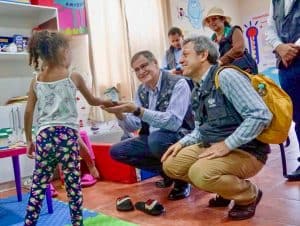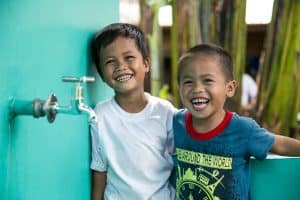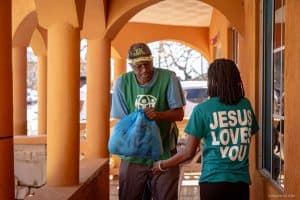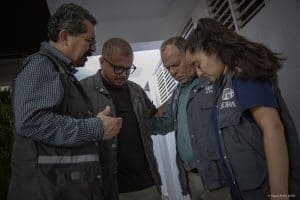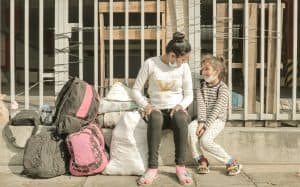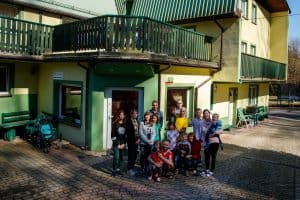In 2024, the Adventist Development and Relief Agency (ADRA) reaffirmed its role as a global leader in disaster response and humanitarian aid, addressing more than 114 emergencies across the globe. From natural disasters to conflict zones, ADRA’s tireless efforts have brought relief and hope to countless communities. This year’s record-breaking floods in Asia, Europe, and South America, along with escalating conflicts in the Middle East, strengthened our resilience and commitment to serving humanity.
Earthquake in Japan: ADRA responded to the devastating earthquake that struck the Noto Peninsula in Japan on January 1, 2024. The earthquake, measuring 7.6 magnitude, claimed more than 230 lives, leaving a trail of destruction, impacting hundreds of communities, and causing significant damage to homes and infrastructure. ADRA Japan swiftly responded to the crisis by conducting comprehensive needs assessments through its network of disaster relief organizations. These assessments were crucial for understanding the immediate needs of the affected population and formulating effective response strategies. Our team distributedessential supplies such as food, water, shelter, and hygiene items. These supplies were critical for meeting the fundamental needs of survivors in evacuation centers and impacted areas. Recognizing the disaster’s long-term effects, ADRA became involved in short- and long-term recovery efforts. These included housing evaluations, repairs, support for volunteer center operations, and community assistance to restore normalcy and livelihoods.
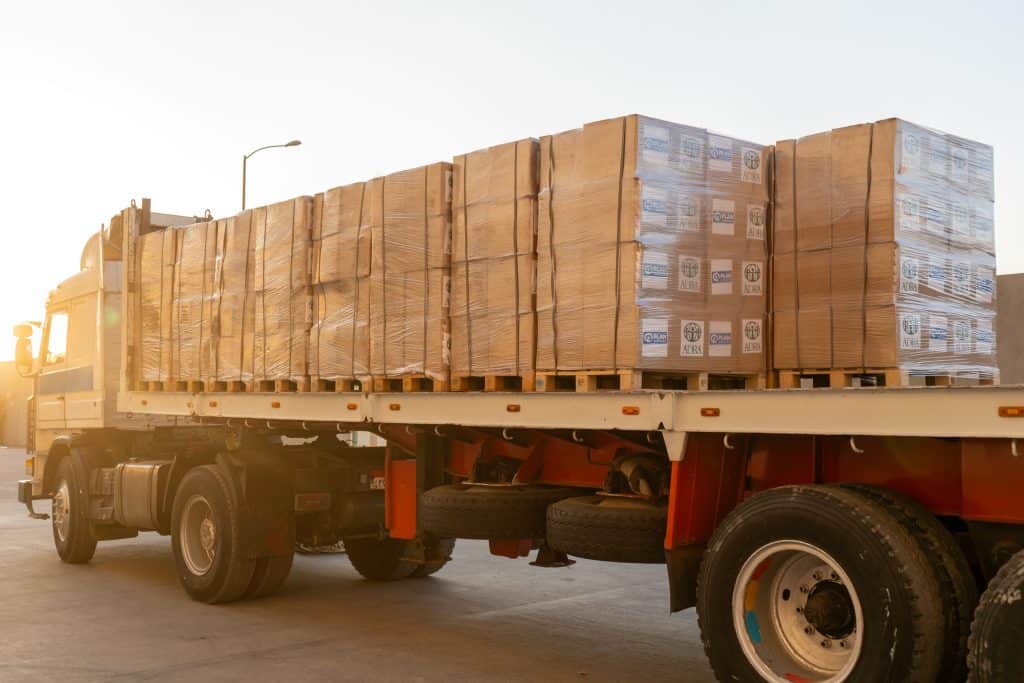
ADRA Helps in Gaza: In Gaza, ADRA took urgent action to address critical food security needs among displaced communities in response to the escalating humanitarian crisis in the region. ADRA, in partnership with non-profit organizations like Anera, launched the 2024 Gaza Emergency Food Project to extend vital assistance to communities in the region. This joint endeavor encompassed a range of initiatives aimed at addressing the immediate needs of those hardest hit by the crisis. ADRA’s response included the procurement, preparation, and distribution of more than 28,500 hot meals through community kitchens in North Gaza, ensuring that vulnerable individuals received nourishment during these trying times. ADRA also distributed hygiene kits to promote health and sanitation practices among affected communities, mitigating the risk of disease transmission. More than 7,300 food parcels containing essential items such as tomato sauce, potatoes, carrots, cooking oil, and za’atar—an aromatic Middle Eastern blend of herbs, sesame seeds, and sumac spice—were distributed to host communities through local cooperatives, providing sustenance and culinary diversity to those in need.
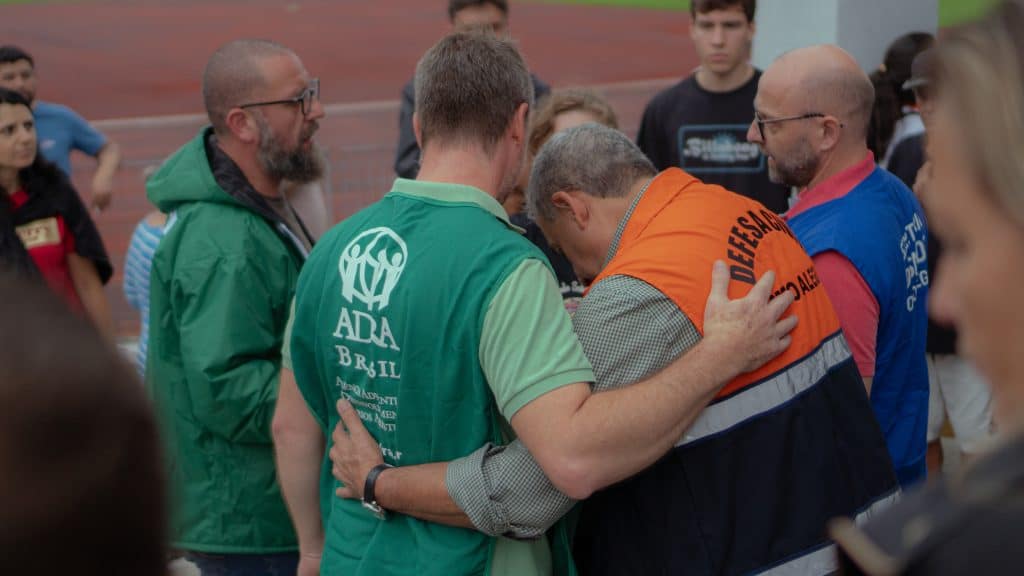
Brazil Flooding: In Brazil, ADRA mobilized aid to respond to the devastating floods in Rio Grande do Sul. The country declared a state of emergency in May 2024. The extreme weather, which began with torrential rains in April, affected about 2.3 million people, displacing hundreds of thousands, many of whom were relocated to temporary shelters. More than 150 people died due to the flooding, with many more missing. ADRA Brazil deployed its Mobile Unit, equipped to provide emergency aid in the wake of disasters within days of the crisis. Our truck was supported by more than 200 volunteers working different shifts and in various locations, who assisted devastated villages by providing services twice daily. Thanks to our donors and volunteers, we were able to provide laundry, meal distribution, water supplies, hygiene and wash kits, and more.

Lebanon Response: Despite security concerns and mobility challenges, ADRA swiftly mobilized to provide essential aid since the beginning of the crisis. ADRA’s country office in Lebanon partnered with the Internal Security Forces (ISF) and volunteers from Middle East University to distribute breakfasts and hot meals in shelters. ADRA also collaborated with the World Food Programme (WFP) and other humanitarian agencies to deliver food parcels to internally displaced persons (IDPs) and provide e-cards (electronic vouchers) for food and other essential needs. ADRA supplied educational assistance to displaced families at the Adventist Secondary School, such as textbooks and uniforms, as well as food and non-food vouchers. Additionally, our team worked to ensure that communal kitchens and restrooms were operational to serve more people.
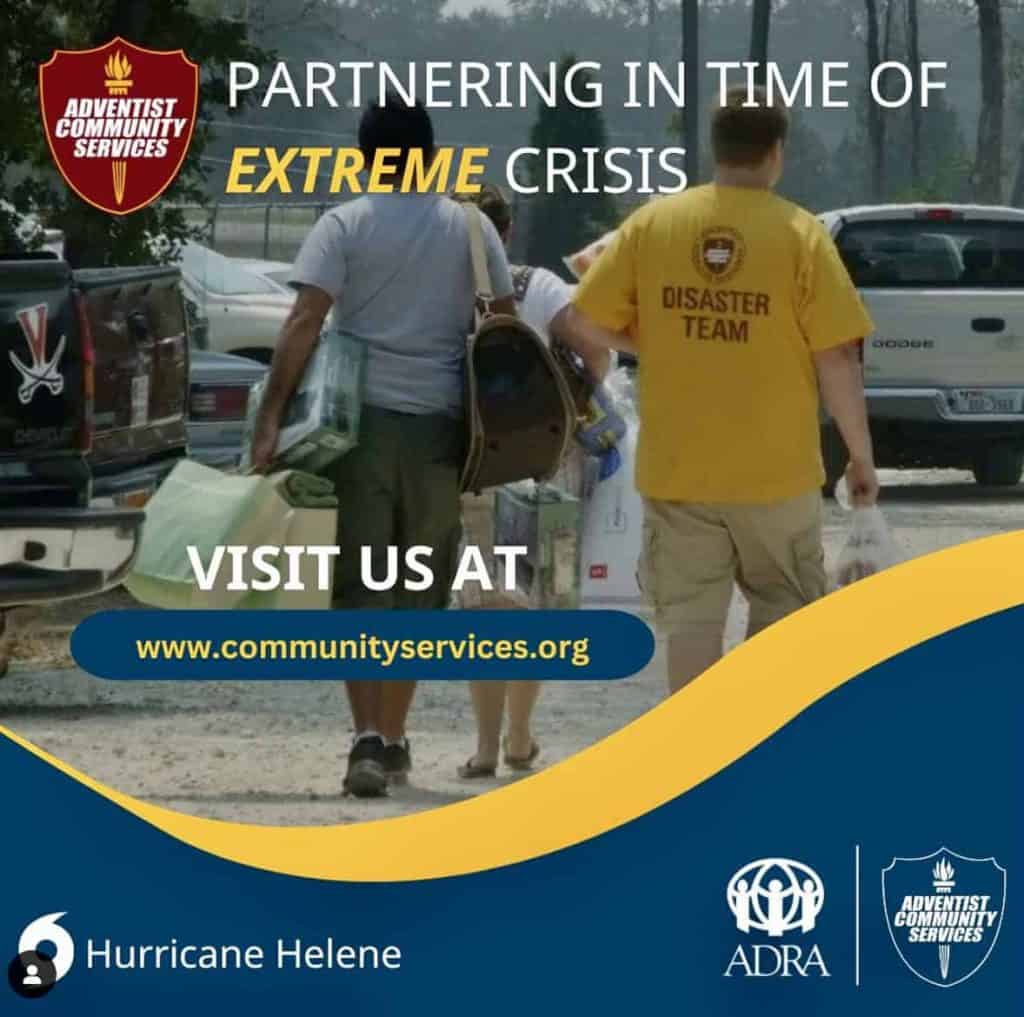
Hurricane Helene: This year, ADRA joined forces with Adventist Community Services (ACS) to assist victims of Hurricane Helene in their recovery efforts across the United States. ADRA granted $150,000 to ACS to support relief efforts in areas such as Asheville, North Carolina, Georgia, and other severely affected regions. This collaboration aimed to expand operations and provide much-needed emergency assistance to those impacted by the storm. As part of the relief efforts, ADRA also delivered hundreds of solar lanterns to ACS’s relief operations warehouse in North Carolina. These compact, portable lanterns provided a reliable backup light source for communities without power. Durable and waterproof, the lanterns could be charged via solar energy or micro-USB, ensuring safe illumination when electricity was unavailable.
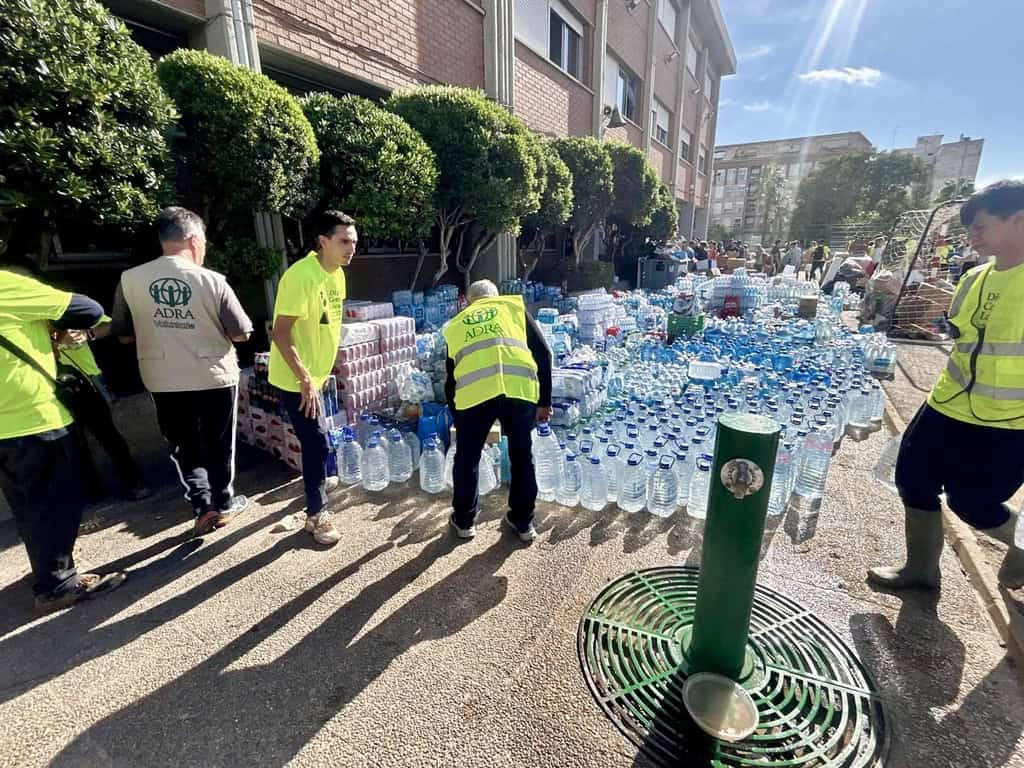
Flooding in Spain: The Adventist Development and Relief Agency (ADRA) mobilized emergency operations in Spain after torrential rains devastated entire municipalities, mainly in the region of Valencia, on October 29. The severe flooding caused by the torrential rainfall affected more than 450,000 people, with widespread damage to infrastructure and homes. Local authorities reported that at least 222 lives were lost, and dozens of people were still missing. Our team was at the forefront on the ground, providing humanitarian aid to those displaced and affected by the floods.
As 2024 comes to a close, ADRA’s responses to emergencies around the world underscore the organization’s commitment to serving humanity with compassion and efficiency. Whether through immediate relief or long-term recovery efforts, ADRA continues to bring hope and tangible support to communities in crisis, helping to rebuild lives and inspire resilience in the face of adversity.
